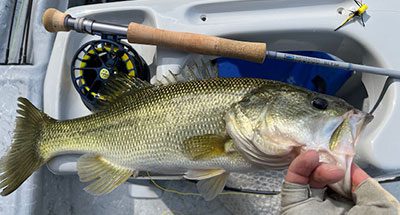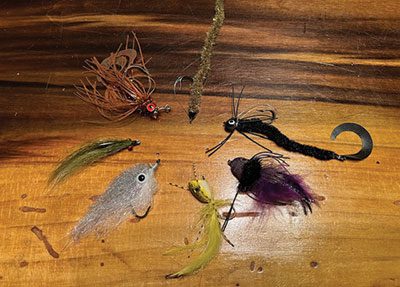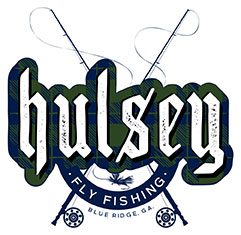Springtime in the South is one of the best times to go after the most popular gamefish in America, which is the largemouth bass! Fly rodding for bass is about as much fun as you can have! One of the reasons bass are so popular is the fact that everyone knows where there is a close to home pond, lake or river that contains a few of these battlers.
Both largemouth and spotted bass are pretty aggressive and will readily attack a well-presented fly. When the water temperatures reach about fifty degrees largemouth will start moving towards and staging for spawning. Luckily for the angler they will start eating pretty much everything in sight. I usually concentrate on fishing a little off the shore in about five to ten feet of water getting the fly down in that zone where staging occurs. Using an intermediate or sink tip fly line will accomplish this easily and be more fun to cast than a full sinking line we sometimes use in winter.
Fly patterns that work include bluegill type streamers, jig style crawfish, and worm flies. Bass are wanting high calorie content food so don’t be shy about throwing some large gawdy imitations. Bouncing or swimming these flies close to a bass’s face will usually result in a pickup. I like a good stiff eight weight not only to chunk out these bulky flies but also to set the hook hard enough to get it in there good and get the fish moving toward the boat. At that depth, tippet size of 12 to 20 pound test fluorocarbon should be used depending on cover and water clarity. Pre-spawn bass will be at their heaviest and your tippet needs to be big enough to handle the fish as quickly and efficiently as possible. Handle that big female as gently as you would a trout and she should be able to continue on the way to spawning like nothing happened.

When bass are this shallow, frog poppers, light weight worm or bait fish patterns fished on a floating fly line will get crushed around brush or logs along the bank. This is some of the most fun you can have on the fly! A fly rod is perfect for this situation. Seven or eight weight rods are my choice depending on cover density. You need to be able to move the fish away from cover quickly! If you are interested in learning how to consistently catch bass on the fly in all seasons we offer classes to get you tuned in. No experience or equipment necessary! We have all that for you to use. The bass class is done from our custom outfitted ClackaCraft Head Hunter skiff. We fish some great electric only lakes here in North Georgia and show you how to catch fish from top to bottom. Check out our website for more information. Let’s go!
Give David Hulsey a call at (770) 639-4001 to book a class or a guided trout trip. See his website at www.hulseyflyfishing.com

